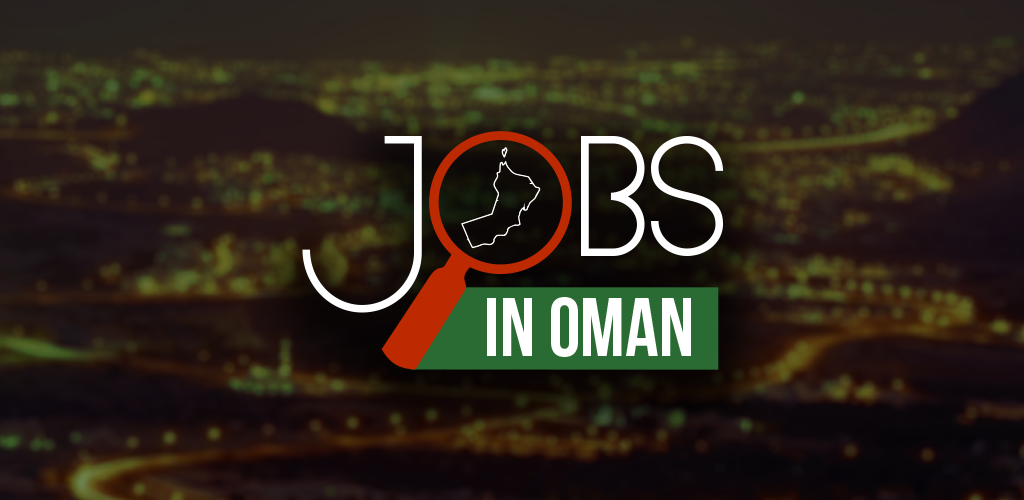What about Jobs in Muscat Oman ?
Jobs in Muscat Oman stands out as a bright spot in the Gulf region’s job market. The city expects a solid 4.3% economic growth in 2024.
Job hunting in Oman might feel overwhelming at first. The job market keeps changing, and each industry has its own set of requirements. We’ve put together a detailed roadmap to help you explore Muscat’s job opportunities in 2024. Our guide covers everything from banking to tourism, tech to hospitality. You’ll discover the hottest sectors, typical salaries, required qualifications, and essential tips for building your career in this exciting city.
Top Growing Industries in Muscat for 2024
The job market in Muscat is evolving rapidly in 2024. Several industries are changing the employment landscape, creating exciting opportunities for job seekers in Oman’s capital.
Banking and Financial Services Sector
Muscat’s financial sector shows exceptional momentum. Banks are expanding substantially and actively recruiting positions from Personal Banking Officers to Senior Financial Specialists. The surge in fintech integration has created fresh roles in digital banking and mobile payment systems.
Key growth indicators in the financial sector:
- Multiple new banking positions across corporate and retail divisions
- Rising opportunities in Islamic banking
- Expanding roles in risk management and compliance
Tourism and Hospitality Opportunities
Muscat’s tourism sector has evolved remarkably, with international tourist arrivals up by 34% in 2023. The hospitality industry responded with impressive results, showing a 23.4% surge in revenue for three to five-star hotels.
The sector continues to expand through several developments:
- Luxury properties like Mandarin Oriental and St. Regis Al Mouj join the market
- 34,660 hotel rooms nationwide, with steady growth
- Revenue reaches approximately $387.70 million by August 2024
Technology and Digital Transformation Roles
Muscat’s technology sector has gained momentum, with industry leaders like Wipro and Huawei at the forefront. The digital transformation wave creates opportunities in:
- Cloud architecture and infrastructure
- Digital banking solutions
- Enterprise software development
- IT support and system administration
The government’s steadfast dedication to digital transformation, in line with Vision 2040, makes this sector promising. Professionals with expertise in emerging technologies are in high demand, especially in fintech and digital banking solutions.
Salary Expectations and Benefits
Salary expectations and benefits are vital factors to evaluate job opportunities in Muscat. The latest salary data and benefits packages paint a clear picture of what you can expect in 2024.
Industry-wise Salary Ranges
Muscat’s salaries vary substantially between industries. Monthly gross salaries typically range from 759 OMR to 2,927 OMR, though top earners can make more. Here’s a breakdown by major sectors:
| Industry | Monthly Salary Range (OMR) |
|---|---|
| Oil & Gas | 3,500 – 7,000+ |
| Banking & Finance | 1,500 – 3,000 |
| Technology | 1,500 – 2,500 |
| Entry-level Positions | 450 – 700 |
Standard Benefits Packages
Oman’s labor law will give a detailed benefits structure to private sector employees. The standard package has:
- Leave Benefits
- 30 days annual paid leave
- 98 days maternity leave
- 182 days sick leave (varying payment structure)
- 7 days paternity leave
Many employers now offer extra perks. Housing allowances, transportation benefits, and health insurance plans that go beyond the mandatory Dhamani coverage are common.
Performance Bonuses and Incentives
Performance-based compensation has become popular in Muscat’s job market. Companies reward exceptional work through various channels:
- Financial Incentives: Banking and oil sectors often have profit-sharing schemes
- Performance Bonuses: Annual bonuses range from 1-3 months’ salary based on individual and company results
- Special Allowances: Housing, transportation, and education support are available, especially for expatriate roles
Companies now create innovative reward programs for employees who exceed their targets. Professional development funding has also gained traction. Many employers cover certification costs and workshop fees to support career growth.
Qualification Requirements
Our team put together a complete overview of what Muscat employers want in 2024. Job qualification requirements have changed by a lot as businesses adapt to new demands.
Educational Prerequisites by Industry
Educational requirements differ between sectors. Here are the minimum educational qualifications needed:
| Industry | Minimum Education Requirement |
|---|---|
| Banking & Finance | Bachelor’s in Finance/Economics |
| Technology | Bachelor’s in IT/Computer Science |
| Education | Bachelor’s + Teaching Certification |
| Engineering | Bachelor’s in relevant engineering field |
Employers now prefer specialized degrees that line up with their industry needs. They look for candidates who blend theoretical knowledge with hands-on skills.

Experience Requirements
The job market in Muscat shows clear patterns for experience requirements. Professional roles typically need:
- Entry-level positions: 2-4 years
- Mid-level roles: 5-8 years
- Senior positions: 10-15 years
Muscat’s job market stands out because of its focus on regional experience. Employers value candidates with GCC experience a lot, especially for senior roles. Technical positions in oil and gas need 4-10 years of specific industry experience.
Professional Certifications That Matter
Several certifications can improve your employability in different sectors:
- Technical Certifications:
- ISO14001 for environmental management
- NEBOSH for safety professionals
- Welding and inspection certifications for construction
- Professional Qualifications:
- TEFL/TESOL for education sector
- Financial certifications for banking
- Industry-specific quality control certifications
Employers want multiple certifications more often now, especially in technical roles. Certification requirements keep getting stricter in regulated industries like oil and gas, banking, and education.
Expatriates who want to work in Oman need extra documentation. This includes authenticated educational certificates and professional qualifications from their home countries. You should complete this process before starting your visa application.
Career Growth Prospects
The job market in Muscat is changing faster than ever. The growth opportunities in sectors of all sizes look promising. Data shows 86,540 job opportunities emerged between 2021-2022, that indicates strong potential for career advancement.
Advancement Opportunities
Organizations in Muscat have transformed their approach to career progression. The National Employment Policy creates clear paths for growth across industries. Here’s how career progression typically works:
| Career Level | Typical Timeline | Key Requirements |
|---|---|---|
| Entry Level | 2-3 years | Technical expertise + Professional certifications |
| Mid-Management | 4-6 years | Leadership skills + Project management |
| Senior Management | 7-10 years | Strategic planning + Industry expertise |
Skill Development Programs
The training initiatives in Muscat stand out for their excellence. The government has launched four major development programs:
- The National Strategy for Professional Standards (49% complete)
- The Training Project creating 11,000 new opportunities
- The Labor Market Policies Development Project (65% complete)
These programs excel at teaching practical skills that match market needs. Organizations invest heavily in employee development and offer specialized training in advanced technology and leadership skills.
Leadership Paths in Different Sectors
Leadership opportunities shine in a variety of sectors. Leadership development in Muscat combines traditional values with modern management practices to create something unique.
The leadership landscape has evolved remarkably. 13,242 job seekers found private sector positions, and many joined leadership development tracks. The focus areas stand out:
- Dynamic Leadership Development
- Mentorship programs with senior executives
- Cross-functional leadership exposure
- International leadership training opportunities
- Sector-Specific Growth Tracks
- Oil & Gas: Technical to operational leadership
- Banking: Risk management to strategic leadership
- Technology: Project management to digital transformation leadership
The National Employment Policy project deepens companies’ commitment to building strong leadership pipelines. Organizations develop local talent through structured programs that blend theoretical knowledge with hands-on leadership experience.
Muscat’s career growth stands out because it combines traditional values with modern business practices. Companies invest in leadership development that emphasizes both technical expertise and soft skills. This creates well-rounded leaders who can drive innovation and growth effectively.
Work Permits and Legal Requirements
Getting your work permit and visa in Muscat needs close attention to detail. We looked at the latest rules to help you understand everything you need to work in Oman.
Visa Processes for Expatriates
The visa process has changed a lot for 2024. A standard work visa stays valid for 2 years after stamping. The process usually takes about a month. Here’s what you need to know about visa types:
| Visa Type | Duration | Purpose |
|---|---|---|
| Work Visa | 2 years (renewable) | Standard employment |
| Temporary Work Visa | 4-9 months | Project-based work |
| Employment Contracting | 2 months | Freelance/consulting |
Muscat’s visa process stands out because you need an employer sponsor. Your future employer must submit your visa application through Royal Oman Police (ROP) offices or authorized typing centers.
Local Labor Laws
The new Oman Labor Law (Royal Decree 53/2023) has revolutionized employment rules. Here are the most important changes:
- Working Hours: Down to 8 hours daily from 8.5
- Sick Leave: Now 182 days instead of 10 weeks
- Maternity Leave: Extended to 98 days
- Paternity Leave: Added 7 days
The sort of thing I love is how they’ve added provisions for economic reasons in termination cases. A new committee now reviews these requests, with members from ministries and labor groups.
Required Documentation
Here’s a complete list of everything you need for your work permit:
- Primary Requirements:
- Valid passport (minimum 6 months validity)
- Completed visa application form
- Professional qualifications certificates
- Medical fitness certificate
- Additional Documentation:
- Two recent passport photographs (4cm x 6cm)
- Employment contract in Arabic
- Educational certificates (authenticated)
- Police clearance certificate
It’s worth mentioning that all documents need proper authentication and Arabic translation. Your medical exam must happen within 30 days of arriving in Oman.
The residence card process needs a visit to the Civil Status Department within 30 days of entry. You’ll need to:
- Take blood tests at approved medical centers
- Get fingerprinted
- Provide biometric data
Workers keep their passports – employers can’t take them. You don’t need exit permits to leave the country either.
The Ministry of Labor has put temporary holds on certain jobs starting September 2024. This affects construction workers, cleaners, and some technical positions. Current workers can still renew or transfer their visas.
Conclusion
The job market in Muscat offers plenty of exciting roles in banking, tourism, and technology. Strong economic growth and government support drive these opportunities. Competitive salaries begin at 759 OMR with complete benefits packages that attract talent from both local and international markets.
Professional growth comes naturally with clear goals and measurable progress paths. Companies invest heavily in their employees through training programs and leadership development. The new labor laws now give workers better protection and improved benefits.
You need proper preparation to succeed in Muscat’s job market. Start by understanding your industry’s requirements and getting your credentials authenticated properly. The most rewarding careers often line up with Vision 2040, especially in technology and financial services sectors.

